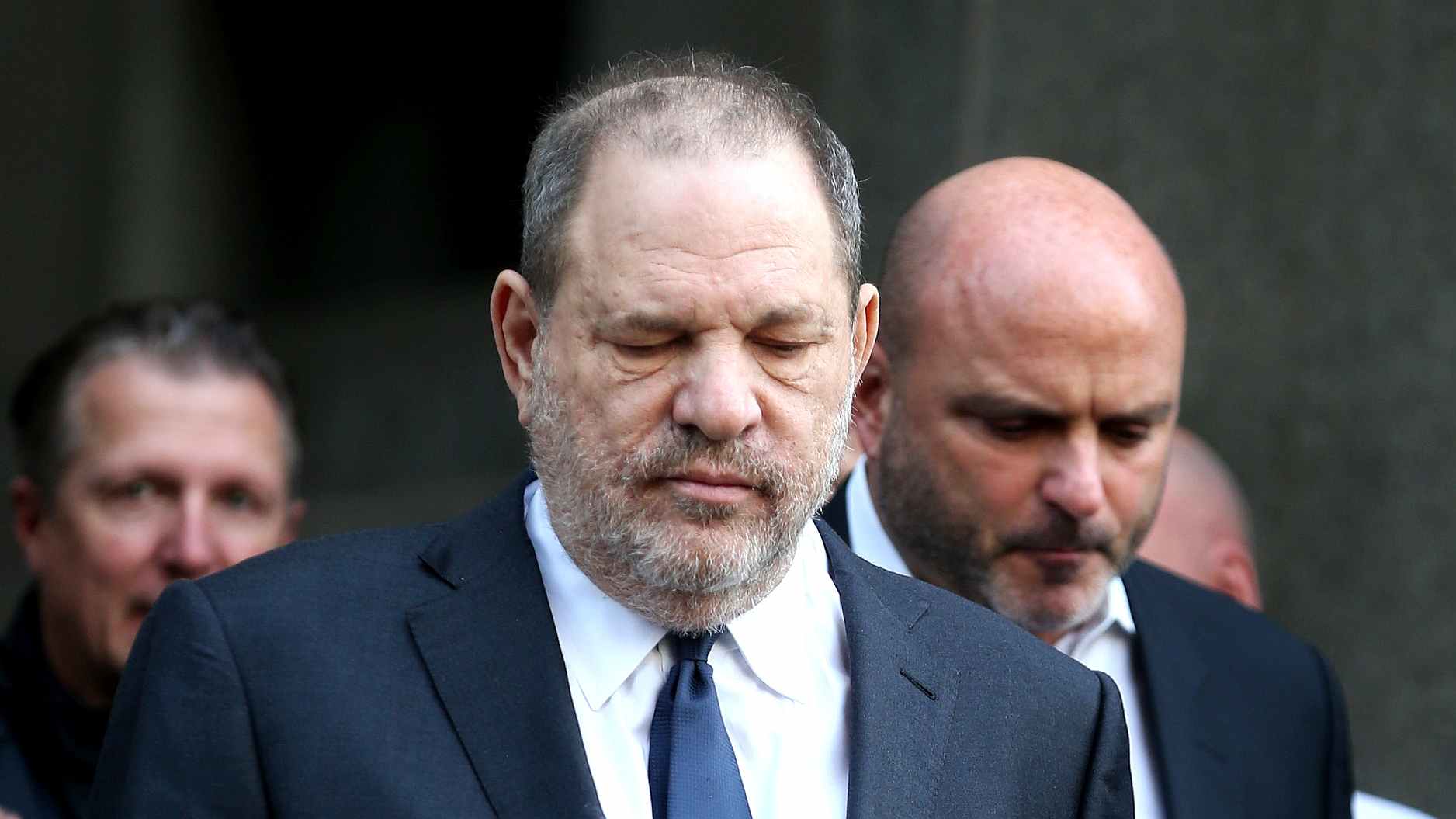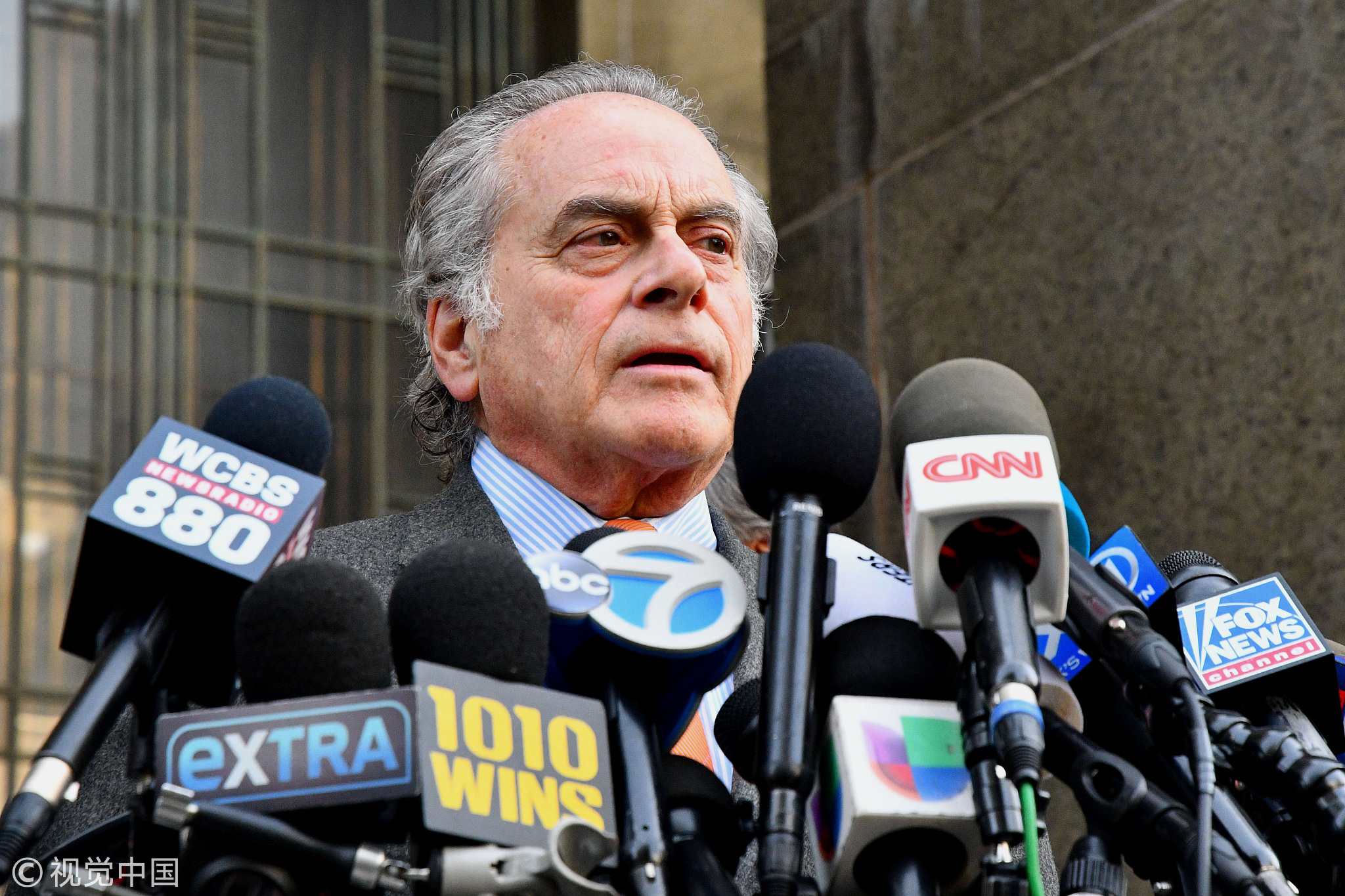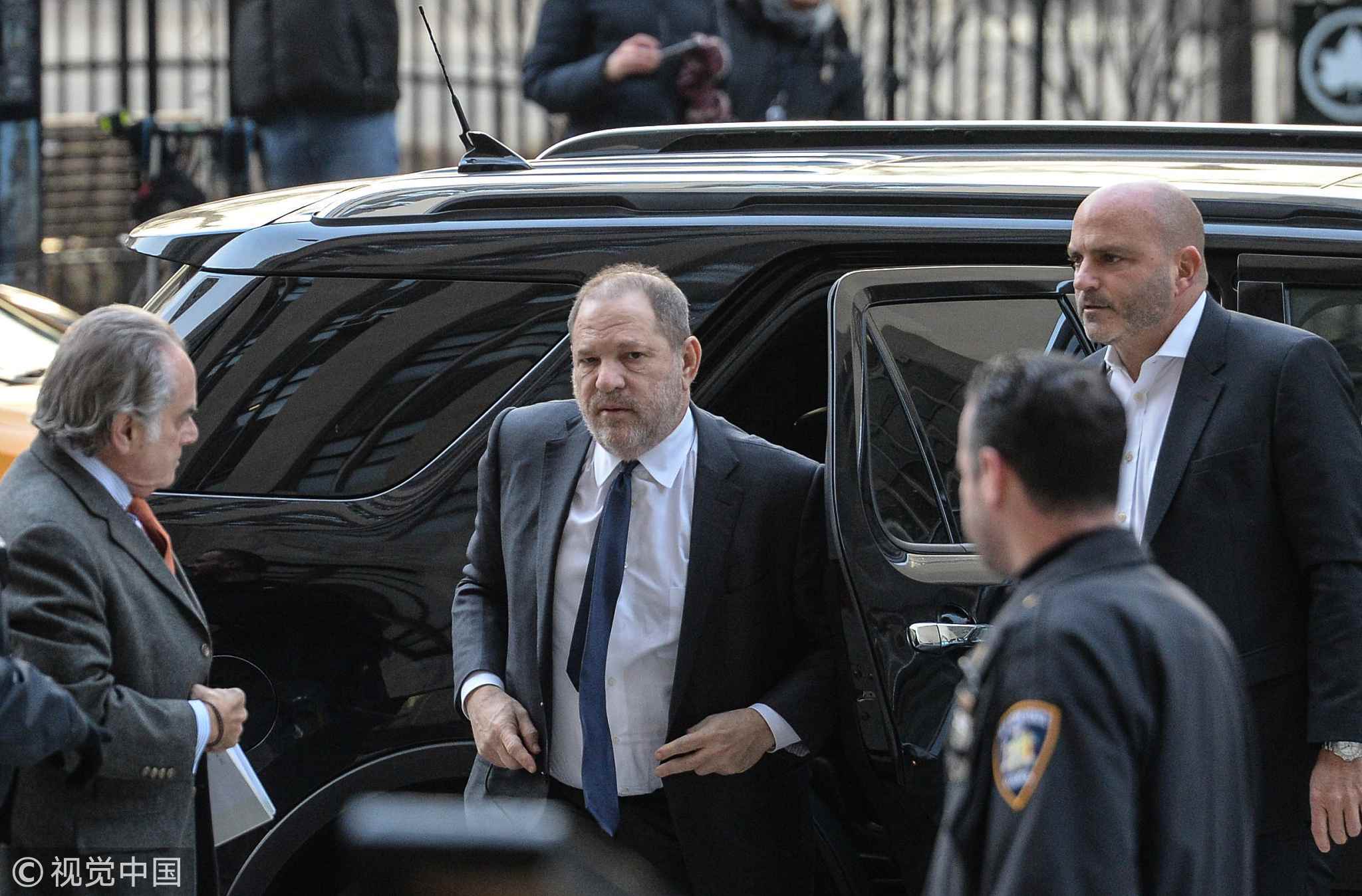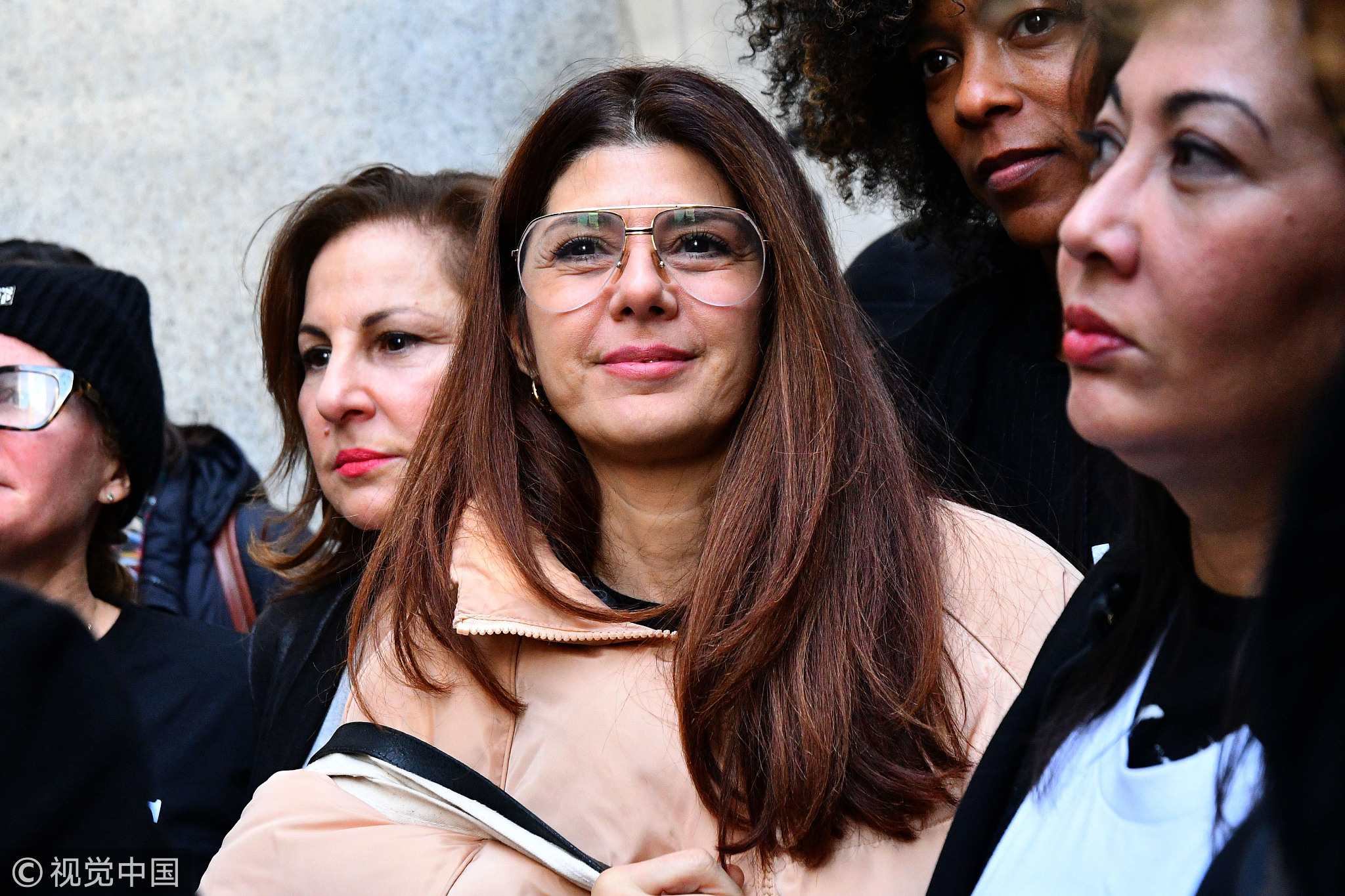
Celebrity
08:56, 21-Dec-2018
Film producer Harvey Weinstein loses bid to dismiss criminal case
Updated
07:46, 24-Dec-2018
CGTN

A New York state judge on Thursday denied Harvey Weinstein's motion to dismiss criminal charges that he sexually assaulted two women, rejecting the film producer's argument that police and prosecutorial misconduct tainted the case.
Supreme Court Justice James Burke in Manhattan announced his decision at a hearing in a packed courtroom. Benjamin Brafman, a lawyer for Weinstein, told reporters outside the courthouse he was disappointed in the decision but was confident his client would prevail at trial.
Burke scheduled a pretrial hearing in the case on March 7.

Benjamin Brafman, attorney for former Weinstein Co. Co-Chairman Harvey Weinstein, speaks during a press conference outside state supreme court in New York, U.S., December 20, 2018. /VCG Photo
Benjamin Brafman, attorney for former Weinstein Co. Co-Chairman Harvey Weinstein, speaks during a press conference outside state supreme court in New York, U.S., December 20, 2018. /VCG Photo
In a written decision released after the hearing, Burke said there was “no basis for the defendant's claim of prosecutorial or law enforcement misconduct in the proceedings.”
The ruling came about two months after Weinstein won dismissal of a charge involving a third woman after prosecutors revealed that a New York City police detective had withheld information during the investigation, and said they could no longer pursue the charge.
In his motion to dismiss the remaining counts, Weinstein said the detective's withholding of information compromised the integrity of the entire grand jury process that led to the indictment. Burke, however, wrote that a problem with one charge did not “infect the integrity” of the other charges, which concern different women.

Harvey Weinstein heads into Manhattan Supreme Court to learn whether a judge will grant his motion to dismiss criminal charges related to the sex scandal in New York, U.S., December 20, 2018. /VCG Photo
Harvey Weinstein heads into Manhattan Supreme Court to learn whether a judge will grant his motion to dismiss criminal charges related to the sex scandal in New York, U.S., December 20, 2018. /VCG Photo
Weinstein has also argued that the indictment should be dismissed because the grand jury had not been shown communications that he said showed a long-term, consensual relationship between him and one of the women. Burke said that while prosecutors must disclose evidence favorable to a defendant before trial, they do not have to show it to a grand jury.
Weinstein, who faces an up to life in prison if convicted of the five charges against him, has denied having nonconsensual sex with anyone following accusations by more than 70 women, mostly young actresses and other women employed in the movie business, of sexual misconduct, including rape, going back decades.
The accusations led to the #MeToo movement in which hundreds of women have publicly accused powerful men in business, politics and entertainment of sexual harassment and abuse.

Actresses Marisa Tomei (C) and Kathy Najimy (L) exit state supreme court after attending the hearing of Weinstein Co. Co-Chairman Harvey Weinstein in New York, U.S., December 20, 2018. /VCG Photo
Actresses Marisa Tomei (C) and Kathy Najimy (L) exit state supreme court after attending the hearing of Weinstein Co. Co-Chairman Harvey Weinstein in New York, U.S., December 20, 2018. /VCG Photo
As the accusations against Weinstein mounted, his company Weinstein Co. fired him and filed for bankruptcy, and he was expelled from the Academy of Motion Picture Arts and Sciences.
Through his company and another studio, Miramax, Weinstein won plaudits and awards for movies including “Shakespeare in Love,” “Pulp Fiction” and “The King's Speech.”
(Cover: Harvey Weinstein leaves Manhattan Supreme Court where a judge heard his motion to dismiss criminal charges related to the sex scandal which derailed his career, New York, U.S., December 20, 2018. /VCG Photo)
Source(s): Reuters

SITEMAP
Copyright © 2018 CGTN. Beijing ICP prepared NO.16065310-3
Copyright © 2018 CGTN. Beijing ICP prepared NO.16065310-3